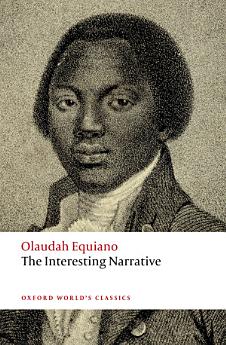The Interesting Narrative
જાન્યુ 2018 · Oxford University Press
ઇ-પુસ્તક
272
પેજ
family_home
પાત્ર
info
reportરેટિંગ અને રિવ્યૂ ચકાસેલા નથી વધુ જાણો
આ ઇ-પુસ્તક વિશે
'I hope the slave trade may be abolished. I pray it may be an event at hand.' Published a few days before the British parliament first debated the abolition of the slave trade in 1789, Olaudah Equiano's Interesting Narrative gives the author's account of his enslavement after his childhood kidnapping in Africa, and his journey from slavery to freedom. Equiano was slave to a captain in the Royal Navy, and later to a Quaker merchant, and he vividly depicts the appalling treatment of enslaved people at sea and on land. He takes part in naval engagements, is shipwrecked, and has other exciting adventures on his travels to the Caribbean, America, and the Arctic. Equiano claimed his own freedom and became an important abolitionist, but his Narrative is much more than merely a political pamphlet. The most important African autobiography of the eighteenth century, it has achieved an increasingly central position among the century's great works of literature. The introduction to this edition surveys recent debates about Equiano's birthplace and identity, and considers his campaigning role and literary achievements.
લેખક વિશે
Brycchan Carey is an expert in the cultural history of slavery and its abolition. He is the author of From Peace to Freedom: Quaker Rhetoric and the Birth of American Antislavery, 1658-1761 (Yale UP, 2012), and British Abolitionism and the Rhetoric of Sensibility: Writing, Sentiment, and Slavery, 1760-1807 (Palgrave, 2005). His most recent collection, Quakers and Abolition, co-edited with Geoffrey Plank, was published by the University of Illinois Press in 2014.
આ ઇ-પુસ્તકને રેટિંગ આપો
તમે શું વિચારો છો અમને જણાવો.
માહિતી વાંચવી
સ્માર્ટફોન અને ટૅબ્લેટ
Android અને iPad/iPhone માટે Google Play Books ઍપ ઇન્સ્ટૉલ કરો. તે તમારા એકાઉન્ટ સાથે ઑટોમૅટિક રીતે સિંક થાય છે અને તમને જ્યાં પણ હો ત્યાં તમને ઑનલાઇન અથવા ઑફલાઇન વાંચવાની મંજૂરી આપે છે.
લૅપટૉપ અને કમ્પ્યુટર
Google Play પર ખરીદેલ ઑડિઓબુકને તમે તમારા કમ્પ્યુટરના વેબ બ્રાઉઝરનો ઉપયોગ કરીને સાંભળી શકો છો.
eReaders અને અન્ય ડિવાઇસ
Kobo ઇ-રીડર જેવા ઇ-ઇંક ડિવાઇસ પર વાંચવા માટે, તમારે ફાઇલને ડાઉનલોડ કરીને તમારા ડિવાઇસ પર ટ્રાન્સફર કરવાની જરૂર પડશે. સપોર્ટેડ ઇ-રીડર પર ફાઇલો ટ્રાન્સ્ફર કરવા માટે સહાયતા કેન્દ્રની વિગતવાર સૂચનાઓ અનુસરો.







